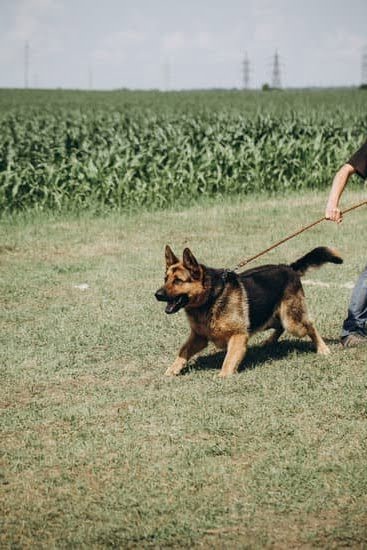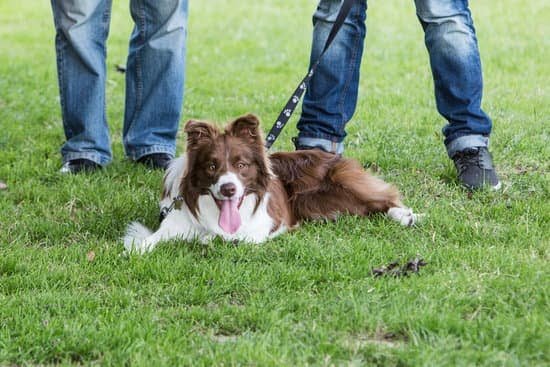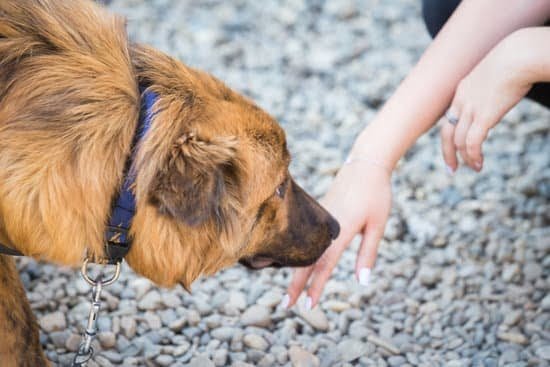Introduction
Neutering your dog can help with potty training, as it can reduce or even eliminate the desire to mark territory inside the home. Additionally, neutering removes the instinct to roam, preventing unwanted soiling when a male dog isn’t able to attend outside bathroom breaks.
Female dogs on heat are also more prone to potty in the home while they are trying to attract a mate, and some studies have shown that neutering helps avoid this problem. Furthermore, a neutered dog is often easier to train because they are less distracted by their urges and remain calmer during evenings and nights. Finally, it should be noted that neutering doesn’t always automatically make a dedicated house-breaking solution; owners will still need to invest time in training their pup when they are young in order to establish good habits moving forward.
Understanding Neutering and Different Types of Procedures
Neutering (aka spaying or castration) is the process of taking away a dog’s reproductive capabilities through the surgical removal of organs such as their testicles or ovaries. This procedure is often seen by veterinarians and breeders, as it’s beneficial for both medical and behavioural reasons, including reducing potential medical issues later in life. In terms of potty training, neutering a male canine has distinct advantages since it reduces the amount of testosterone produced in the body, and this decrease of hormone helps with behavioural control. Neutered male dogs are less likely to exhibit “marking behaviour” (urinating on objects to stake out territory) and dominantly aggressive tendencies. The decreased urges in dogs due to neutering have also been shown to improve overall responsiveness from owners during potty training exercises.
Potty Training Basics and Why Neutering Matters
Neutering your dog can be an important part of successful potty training. When male dogs develop higher levels of testosterone, they may become territorial and defensive of their urine, displaying marking behaviors all over the house. Female dogs in heat may also soil the house during this time as a way to attract males. Neutering or spaying will stop these behaviours, giving you a better chance of successfully fulfilling your potty training goals.
In addition to neutering being a helpful aid in potty training it is important to understand the basics of canine behaviour if you want to truly master housebreaking. Dogs are creatures of habit, so it is best to establish a regular routine for meals, walks and outside time. Also provide positive reinforcement when your pup goes outdoors; a treat or simple praise will help them learn better potty manners especially if done consistently. Finally, watch for signs that your pup needs to go potty, such as pacing at doors and windows or sniffing around and take them outside straight away. With proper practice and understanding of canine behaviour along with neutering your dog, potty training should become an efficient process for both you and your pup.
Hormones and Behavior
Neutering your dog can certainly help with potty training, as hormones play a large role in dogs’ behavior. When a male dog is neutered, the testosterone released from his testicles decreases and his behavior becomes less aggressive. This can help reduce or eliminate marking territories within the house, which is something that unneutered males often do when they feel threatened or overly territorial. Neutering your dog can also result in decreased urine concentration, which reduces the scent of his pee and eliminates those strong odors that he might associate with marking his territory. This can make it easier to train him to use a specific spot outside for potty breaks and discourage him from using other areas of the house. In addition, Neutering can also slow down any alpha-type tendencies that may have caused him to act out at times by challenging your authority as an owner. This can also be beneficial when it comes to housetraining.
Best Practices For Potty Training A Neutered Dog
Neutering your dog can help with potty training, as it reduces the desire to mark their territory which can be a common issue for intact dogs. For best results, it isn’t enough to simply neuter your dog – the process of potty training must also begin. Here are some tips to help you get started:
1. Establish a Regular Routine – Feed your dog on a regular schedule and strive to take them out for frequent trips outside in order create good habits.
2. Reward Good Behavior – Give your pup treats or praise whenever they go outside and eliminate in the designated spot you want them to use.
3. Clean Up Accidents Immediately – Clean up any accidents as soon as possible so that the smell does not act as an incentive for your pup to do it again.
4. Crate Train – Set up an area such as a crate or playpen where your pup will stay when you cannot watch him/her directly; this space should remain clean at all times since it’s where elimination usually won’t happen if they have easy access outside.
5. Monitor Your Dog Clearly – Be aware of when your pup is sniffing around or circling before they poop, if this happens, bring them outside right away before anything else happens! This will help teach them that outdoor is the preferred location for toileting needs.
6. Be Consistent– Make sure both members of the household (if involved) are consistent with following through these steps and making sure that the pup knows what’s expected by giving lots of verbal affirmations and rewards when they do make the right choices!
Conclusion
Neutering your dog can certainly help with potty training, but there are some important pros and cons to consider. On the upside, neutering can reduce the urge for male dogs to mark their territory, which could help with potty training issues. Neutering can also help improve your pet’s behavior and reduce aggressive tendencies that could be contributing to any accidents in the house. However, neutering will not necessarily solve major behavioral problems since potty training issues may be rooted deep in a pet’s personality or history. In addition, there is a risk of post-surgical complications from neuter surgery and there are always ethical considerations regarding anesthesia for any medical procedure.
Ultimately, it is important for each pet family to weigh the risks and benefits associated with neutering their fur baby in order to determine if it is truly the right decision for them. Neutering can certainly help improve obedience and potty training, but it is not necessarily an all-encompassing solution and may not be right for every dog.

Welcome to the blog! I am a professional dog trainer and have been working with dogs for many years. In this blog, I will be discussing various topics related to dog training, including tips, tricks, and advice. I hope you find this information helpful and informative. Thanks for reading!





